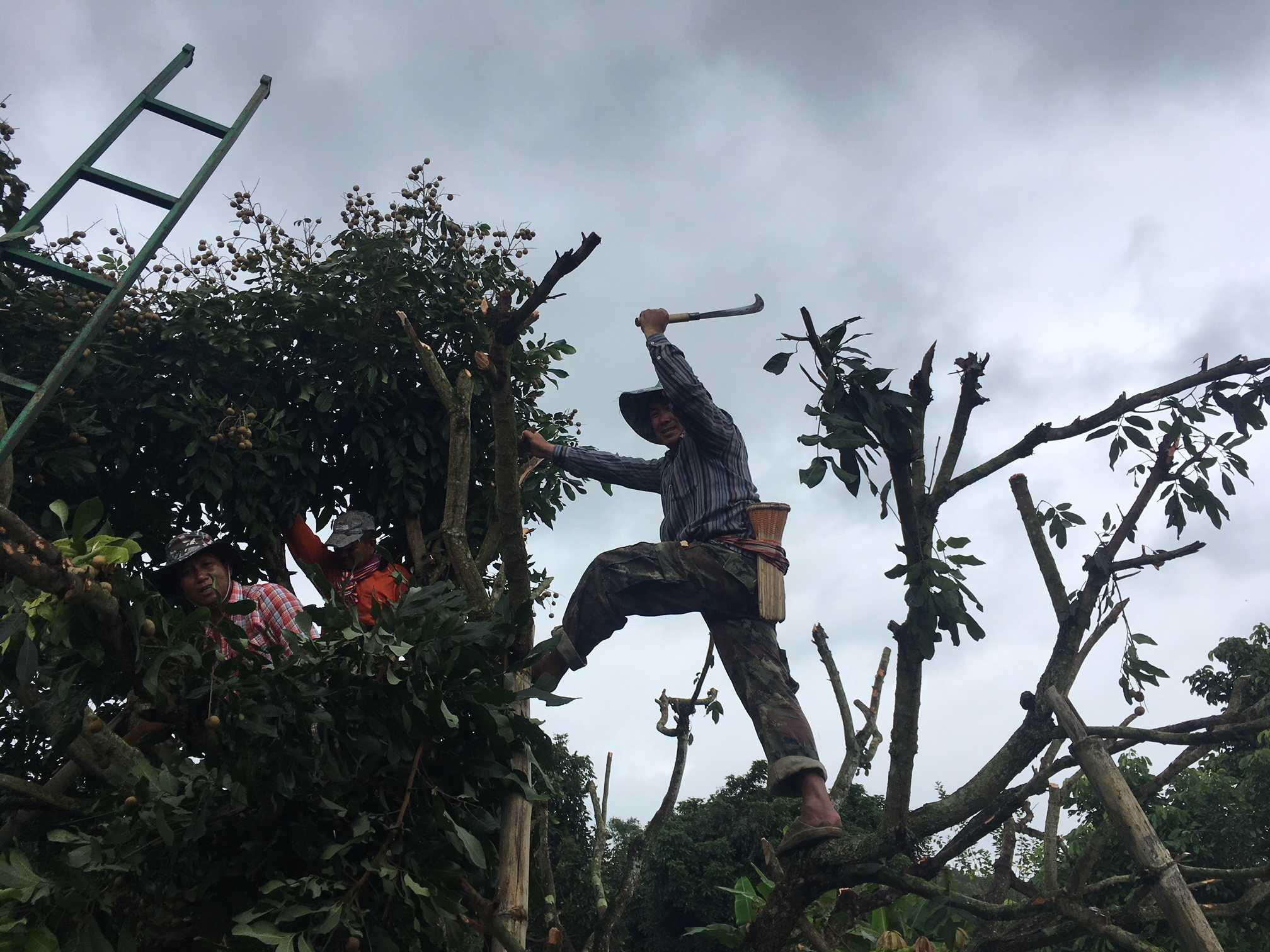
Harvest time in the longan fields of Northern Thailand. (Photo: CGTN )
The Belt and Road Initiative is intended to be about more than building highways and boosting trade – China wants to help other Asian economies develop their business skills.
Thailand is an export-reliant nation. It is seen as essential for companies there to learn new skills, such as e-commerce.
As part of the Belt and Road Initiative, China’s e-commerce giant Alibaba and the Thai government have signed a range of deals to sell Thai products online, in particular agricultural crops such as fruits.
Longan is a sweet-tasting fruit grown extensively in north and east Thailand.
One of the biggest customers for the crop is China, which already consumes 300 million US dollars' worth a year.
Now sales in the traditional marketplace are to be supplemented by selling an extra 10,000 tonnes of Thai longan in China online, through Alibaba’s T-mall retail website.
Thai longan farmer Boontan Sutta, who grows the crop at Chiang Rai in the north of the country, said he is confident selling online will bring more international demand.
“Many farmers in this area are already growing more longan than they did before. If they have extra land they are turning it over to longan,” he said.
Alibaba is investing 320 million US dollars to create a digital hub in Thailand, linking Thai producers to international customers. It will help Thailand establish a national e-commerce platform.
The company will also provide training to 30,000 Thai small- and medium-sized enterprises on how to maximize opportunities in the digital marketplace.
Alibaba Business School is collaborating with Thai universities to train teachers and develop high-quality e-commerce courses. It will also help Thai government officials discover how technology can help society.
“Our mission is to make it easy to do business anywhere,” Brian Wong, vice-president of Alibaba Group, said recently at an event in China.
Around 10 million Chinese holidaymakers visit Thailand each year and many have gained a taste for the Thai fruit during their vacations.
China is the largest importer of Thai fruit products.
The deal to sell longan follows a spectacular Alibaba online promotion of another Thai fruit, durian.
Eighty-thousand durians were snapped up in the first minute the website went live, and fruits worth two million US dollars were sold in just three days.
China is on track to become the world’s biggest consumer – with a prosperous middle-class of 300 million people eager to purchase quality products.
Guan Mu, former Chinese ambassador to Thailand, said: "Within five years China expects to import eight to 10 trillion US dollars' worth of goods from Thailand that will include tropical fruit such as longan, durian and rambutan."
Profit from food exports is growing so quickly in Thailand that many farmers are abandoning low-value crops like rubber and switching to fruit, said Thailand’s Deputy Commerce Minister Sontirat Sontijirawong.
It’s expected that new ways of selling – such as these online deals under the framework of the Belt and Road Initiative – will greatly contribute to Thailand’s prosperity.
The Thai government has made it a priority to grow its digital economy – known as Thailand 4.0 – and the development of e-commerce under the framework of the Belt and Road Initiative is seen as a perfect fit.


